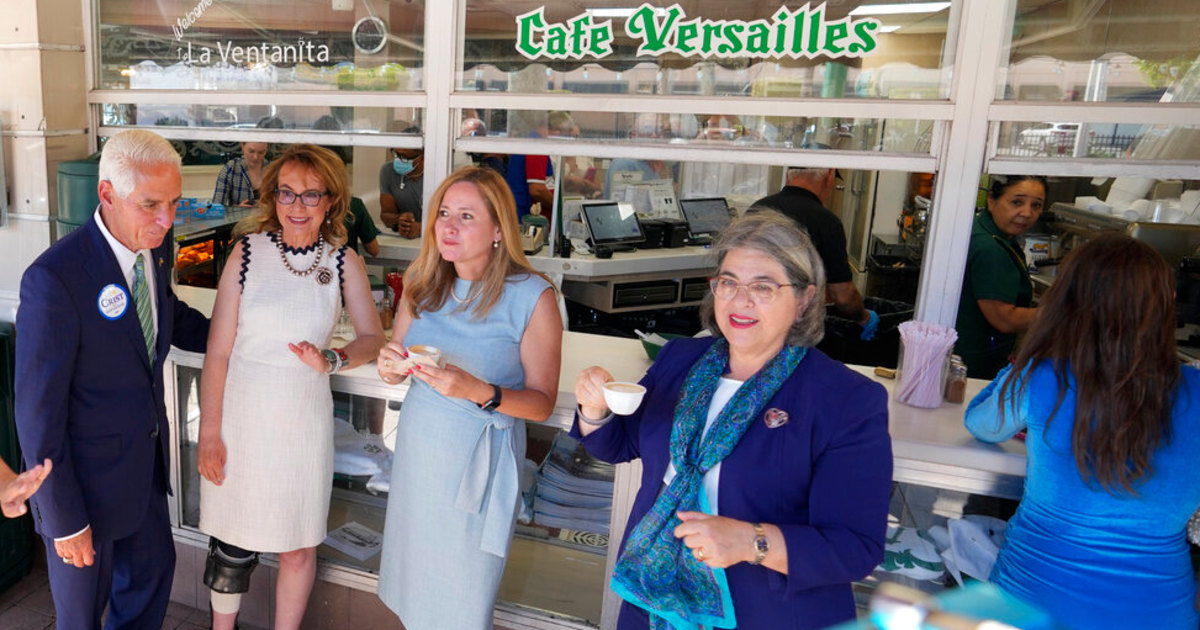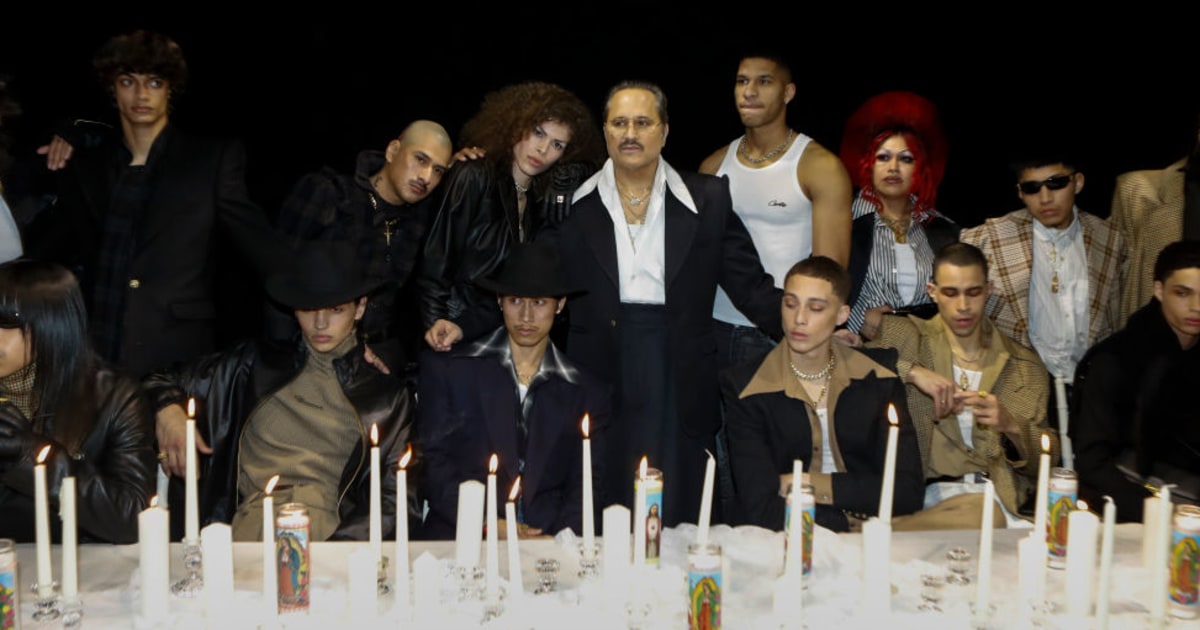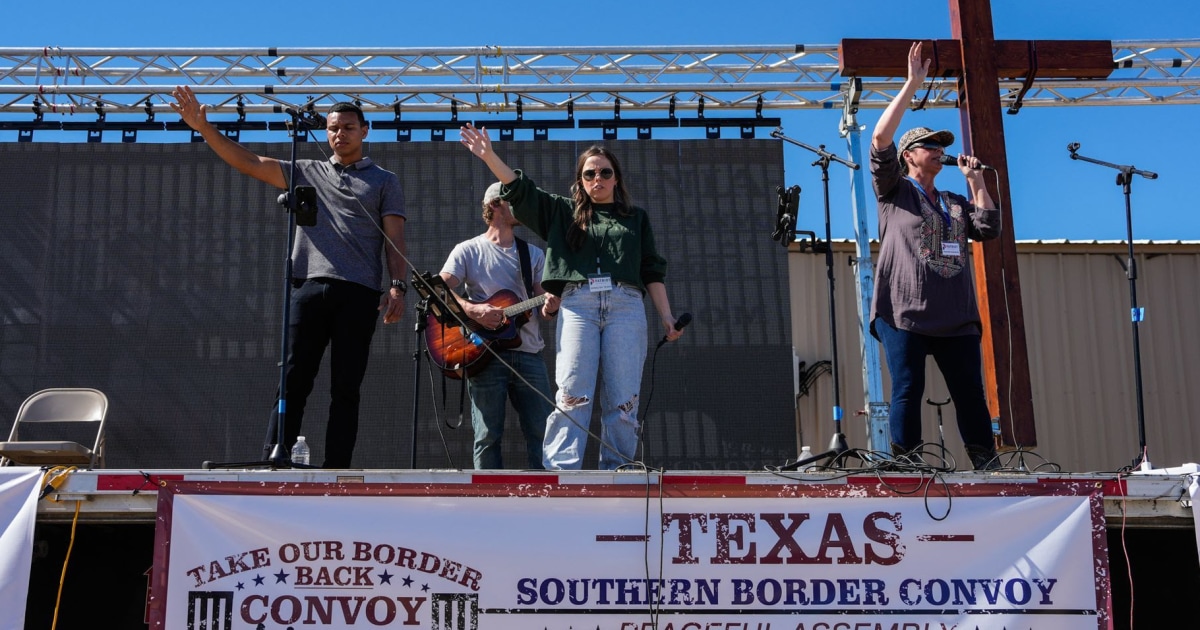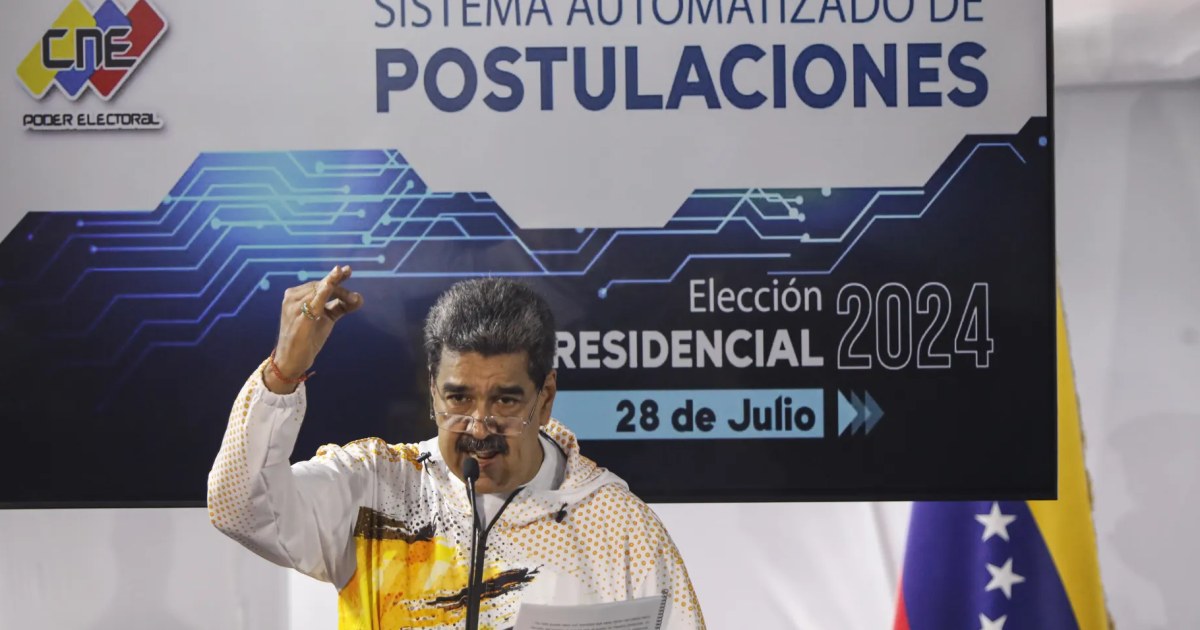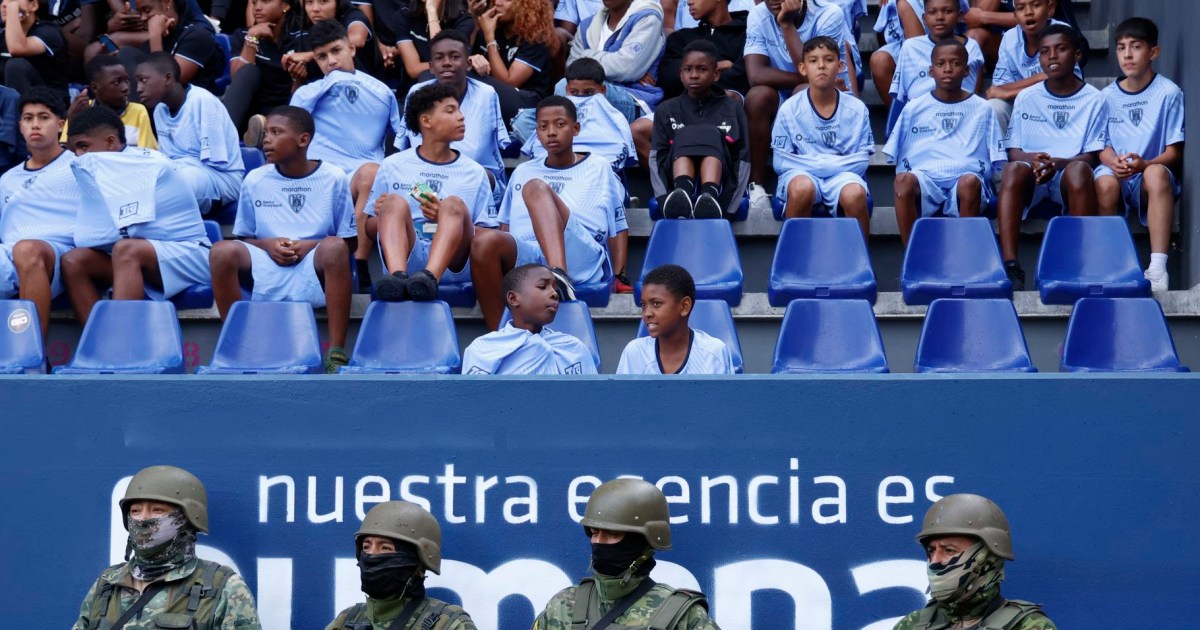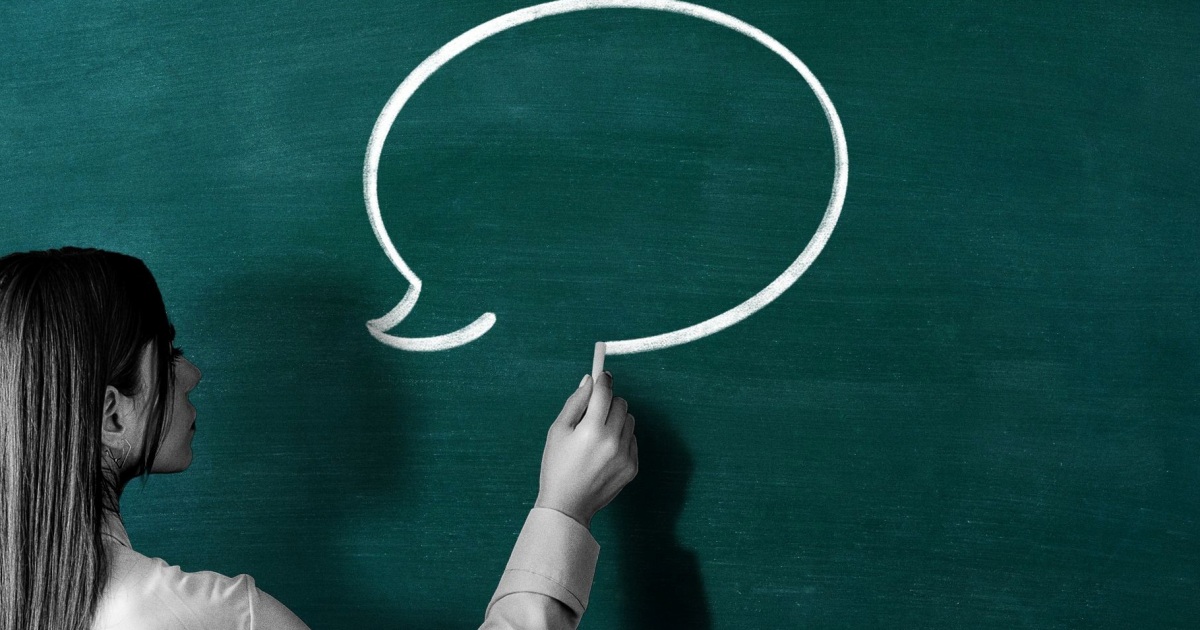By Marina E. Franco and Russell Contreras
Welcome to Axios Latino, a newsletter to tell you every week the stories that have a special impact on the Latino communities in the United States and in Latin America. If you are interested in subscribing and receiving the newsletter in your email (in English), you can do so by clicking here. Every week we will publish it in Spanish on Noticias Telemundo. [Sign up here to read the newsletter in Spanish]
1 theme to highlight: The way of Cuba until shouting "Homeland and Life"
The massive protests on Sunday
in Cuba are a sign that "it is the beginning of the end" of the Castro regime, says rapper Yotuel Romero in an interview, whose song has become the slogan of the demonstrations.
Why it matters
: In the more than 60 years of communist rule, such massive protests have not been seen in so many parts of the island.
And key moments of resistance had been on the rise, especially in recent months, after Raúl Castro left the leadership of the country and the Communist Party in April.
Map of protests throughout the island in recent days, with data from Proyecto InventarioData from Proyecto Inventario;
Map by Will Chase / Axios
The impulse
: The song
Patria y vida
de Romero - with the
reggaeton artists
Gente de Zona, the singer Descemer Bueno and the rapper Maykel Osorbo, currently in custody - accompanied the mobilizations with lyrics that demand "no more lies" and "no more doctrine."
The name of the song gives a twist to the saying that Fidel Castro constantly repeated, "fatherland or death."
The artists' collective Movimiento San Isidro, to which Osorbo belongs, has also encouraged people in recent months to show their discontent;
in April ordinary Cubans intervened to prevent the police from arresting Osorbo.
The background:
Frustration accumulated over decades reached a boiling point with the coronavirus pandemic.
The collapse of tourism, a key source of income for the island, aggravated the economic situation already hit by the US embargo and government mismanagement.
Chronic food and medicine shortages worsened as more than 250,000 Cubans infected with COVID-19 sought help in hospitals on the brink of collapse.
The increasing availability and accessibility of the internet since 2018 has made it easier for people to come together and demonstrate their dissent.
The situation:
At least one person has died in the repression of the protests, the regime admits.
This is Diubis Laurencio Tejeda, 36 years old.
The regime disabled access to the internet, so little reliable information about the arrests has come out.
But civil organizations estimate that at least 200 people have been arrested.
The United States has demanded the Cuban regime to release these people, at the same time that it has sought to discourage Cubans from considering migrating by sea.
Political disagreements are mounting in Washington about how the White House should proceed now.
The other version
: The Cuban ruler, Miguel Díaz-Canel, has publicly acknowledged that there is a shortage, but has again blamed the US embargo in force since 1962. The regime has painted the protests as "riots" and said that it is about a destabilizing "soft blow" allegedly financed by the United States.
2. Deaths of migrants with coronavirus increase at the border
Four out of 10
undocumented
migrants
who have died in border areas had coronavirus before ending up in the Falfurrias, Texas, morgue.
Migrants killed with COVID-19: in this border morgue 40% had the virus
July 14, 202104: 06
More details:
A report by Noticias Telemundo Investiga shows that COVID-19 infections have increased according to tests done on bodies found at the border crossing, at a time when the number of deaths of migrants is increasing this summer.
The symptoms of the coronavirus make heatstroke and heatstroke, as well as dehydration, more suffered in the desert with record temperatures during the day and severe cold at night.
COVID-19 is also more easily transmitted in crowded areas, such as houses where coyotes keep migrants on both sides of the border and in boats that cross the Rio Grande.
On the US side, more than 7,500 coronavirus infections have been registered in ICE detention centers since April, according to a report in The New York Times.
A campaign began on Wednesday to immunize people held at the facility with the Johnson & Johnson vaccine.
The overall situation
: Increasingly, adult migrants heading to the US are fleeing the consequences of the pandemic in addition to previous ills, such as violence and depressed economies in Mexico, Central America, and beyond.
3. An atomic anniversary with hope for repairs
The mushroom cloud from the Trinity atomic test, in 1945. Galerie Bilderwelt / Getty Images
Residents of Hispanic New Mexico
and the Mescalero Apache communities will mark this Friday the anniversary of the Trinity nuclear test, carried out in 1945, with the expectation that the consequences of the detonation on their people will finally be recognized by legislators.
Why it matters
: The side effects of the world's first atomic bomb left long-lasting health problems for families living nearby.
They received no notice prior to the outbreak and were also not included when a law was drafted in 1990 to compensate those affected by nuclear tests monetarily.
The test also generated a rocky substance called trinitite, which locals took in 1945 to make jewelry without knowing they were exposing themselves further to radiation.
Activist Tina Cordova leads efforts to get her community recognized by the compensation law and thus receive financial help to pay for medical treatment for rare cancers.
4. Mexicans suffer catastrophic shortages
Illustration from Axios Visuals
Childhood cancer patients
and Mexicans with HIV have repeatedly had to postpone vital treatments as necessary drugs are constantly in short supply in the country's public hospitals.
Activists estimate 1,600 children have died as a result.
Analysis:
The shortage has increased with the pandemic, but has been escalating since 2018 when the current government commissioned the acquisitions from the Ministry of Finance, which had no experience in such tenders.
The argument was that the previous situation lent itself to corruption.
The situation also suffers in the private sphere: pharmacies report that inventory has fallen by 15%, which affects even people with more manageable diseases such as ulcers.
Patients and their families have won legal protections with which the courts order the Government to deliver the medicines, and the UN has begun to help, but the promises of the authorities for a consistent delivery, in a timely manner, have not been fulfilled.
Relatives of children with cancer during a demonstration against drug shortages at the Benito Juárez International Airport in Mexico City, June 30, 2021. Reuters
The other version:
The Undersecretary of Health, Hugo López-Gatell, was criticized after denying that there was a shortage and suggesting that parents of children with cancer have a “coup vision”.
López-Gatell, who is in charge of the response to the coronavirus in Mexico and heads the health regulatory agency Cofepris, later said that it is “legitimate” for the relatives of children without treatment to come forward.
The authorities have promised that some more medicines will arrive this Friday, but those affected are asking for more durable and long-term solutions.
5. Attacks and arrests in Caracas
Freddy Guevara, a prominent Venezuelan opponent, was detained this week while opposition leader Juan Guaidó was threatened at gunpoint in an apparent renewed attempt by the government of Nicolás Maduro to go after dissent.
Why it matters
: The Maduro regime carried out the arrest despite negotiations scheduled for this August between Chavismo and the opposition, with Mexico as headquarters and Norway as mediator.
Guevara and Guaidó are accused of terrorism because the Chavista regime says that the opposition is working with gangs in Caracas with the supposed purpose of destabilizing and promoting an alleged civil war.
Recent clashes between Caracas gangs and the armed forces forced the closure of highways, interrupting the distribution of necessary products throughout the country.
Hyperinflation and food, fuel and medicine shortages continue.
Criminal gangs face police for the second day in a row in Caracas
July 9, 202100: 28
6. Counting the damage in Colombia: a bloody record in the face of protests
Colombia has
the second worst rate of deaths
in protests in the world after the repression of the mobilizations this spring, according to a report by the anti-impunity body Special Jurisdiction for Peace.
A couple join hands during a protest in Pasto, western Colombia, on June 28, 2021.Sebastián Maya / Long Visual Press / Universal Images Group via Getty Images
Details
: At least 42 people were killed during the protests, more than half in May;
one life every 36 hours, according to the JEP report.
A group of international experts on a special mission also concluded this week that police forces exceeded the use of force, committed sexual violence and carried out maneuvers to plant evidence or infiltrate protests dressed without uniform.
Some 200 officers are under investigation for disciplinary violations, half for abuses of authority and 16 for possible homicide.
More than 60 Colombians are still missing, fearing that they are forced disappearances.
Read between the lines:
Violence in general has skyrocketed in Colombia this year;
86 defenders and activists have already been assassinated, while attacks by rebel guerrillas and paramilitary forces have displaced 44,290 people from their homes.
7. Bolsonaro, hospitalized and facing a possible political trial, lashes out at future elections
Jair Bolsonaro, in the background, during a parade for the anniversary of Brazil's independence in September 2019.Reuters /
Brazilian President
Jair Bolsonaro has been sowing doubts about the elections in the country for more than a year after they happen, setting off the alarms of legislators and in the courts.
More details
: Bolsonaro, retired military captain -who has said that the coup d'état of 1962 should be commemorated-, has affirmed that he believes there will be fraud with the electric ticket system used since 1996 without problems, and has suggested that if he considers that they are not "clean" will not allow elections.
Bolsonaro's popularity has plummeted and former President Luiz Inácio Lula da Silva is the current favorite in polls for the October 2022 vote.
The impulse:
The Brazilian Supreme Court opened an investigation into allegations of bribery in the contracts for vaccines made by the Bolsonaro government, and the Senate is holding hearings to review the handling of the pandemic, which could lead to a presidential impeachment that most Brazilians endorse.
The latest
: Bolsonaro was taken to the hospital on Wednesday for abdominal pain and persistent hiccups.
He will remain under medical surveillance at least until Saturday.
8. Frida, now in high definition
A digital exhibition in Mexico recreates the life and work of Frida Kahlo
July 8, 202101: 01
A new exhibition displays 26 works
by artist Frida Kahlo with interactive elements, including video and audio of the folk music she liked to listen to, as well as the reading of poems.
Descendants of the artist indicate that in this way it is possible to reveal more dimensions of the Mexican art.
Thanks for reading, until next week.
Do you want to see any of the previous editions?
- Behind the multiple crises due to COVID-19 in Latin America
- A pain for the whole hemisphere
- The shedding of innocent blood
- A heat-battered border thirsts for protection
- What worries Hispanics most in the US
- The effects of trying to study when there is COVID-19


